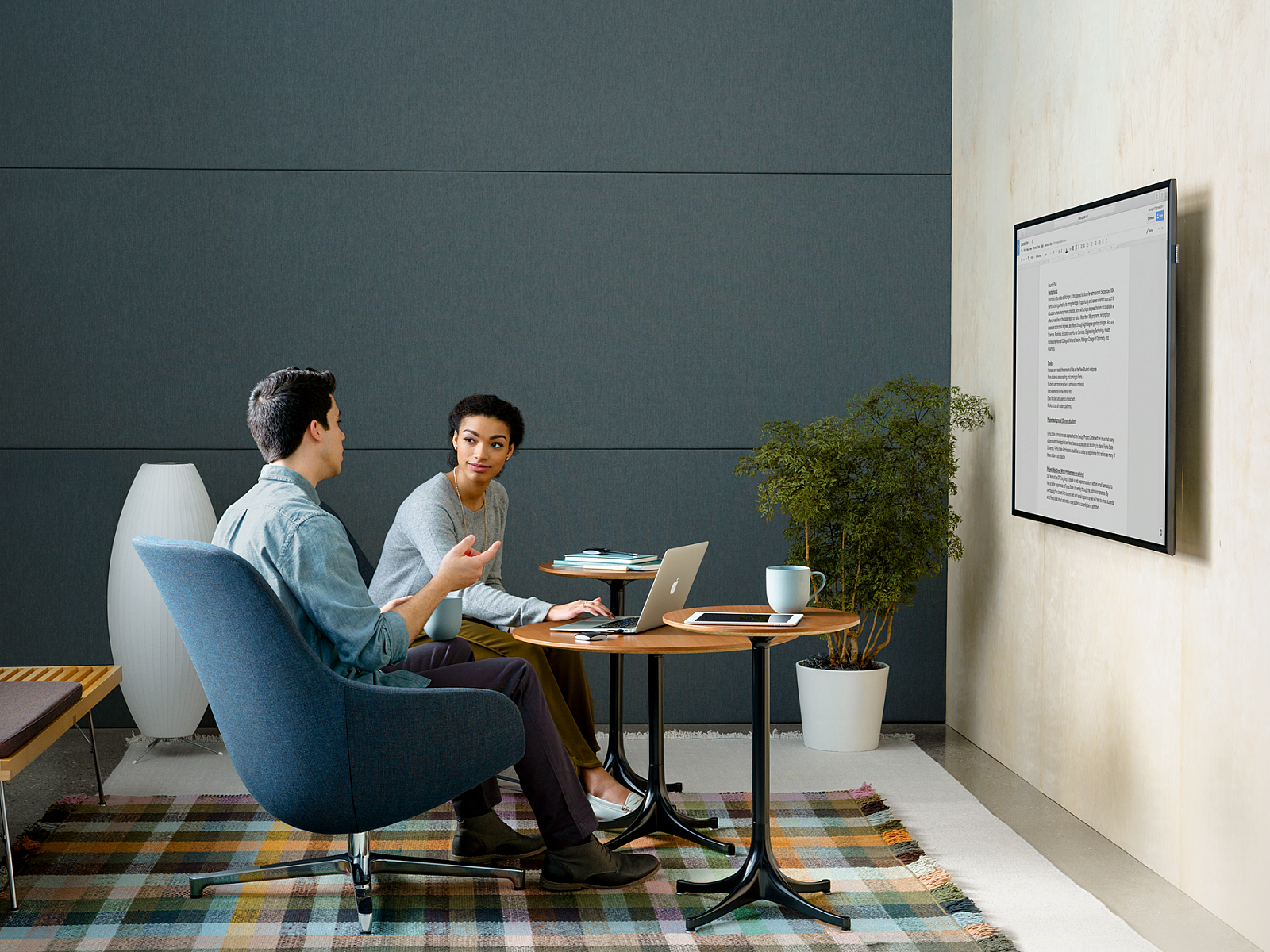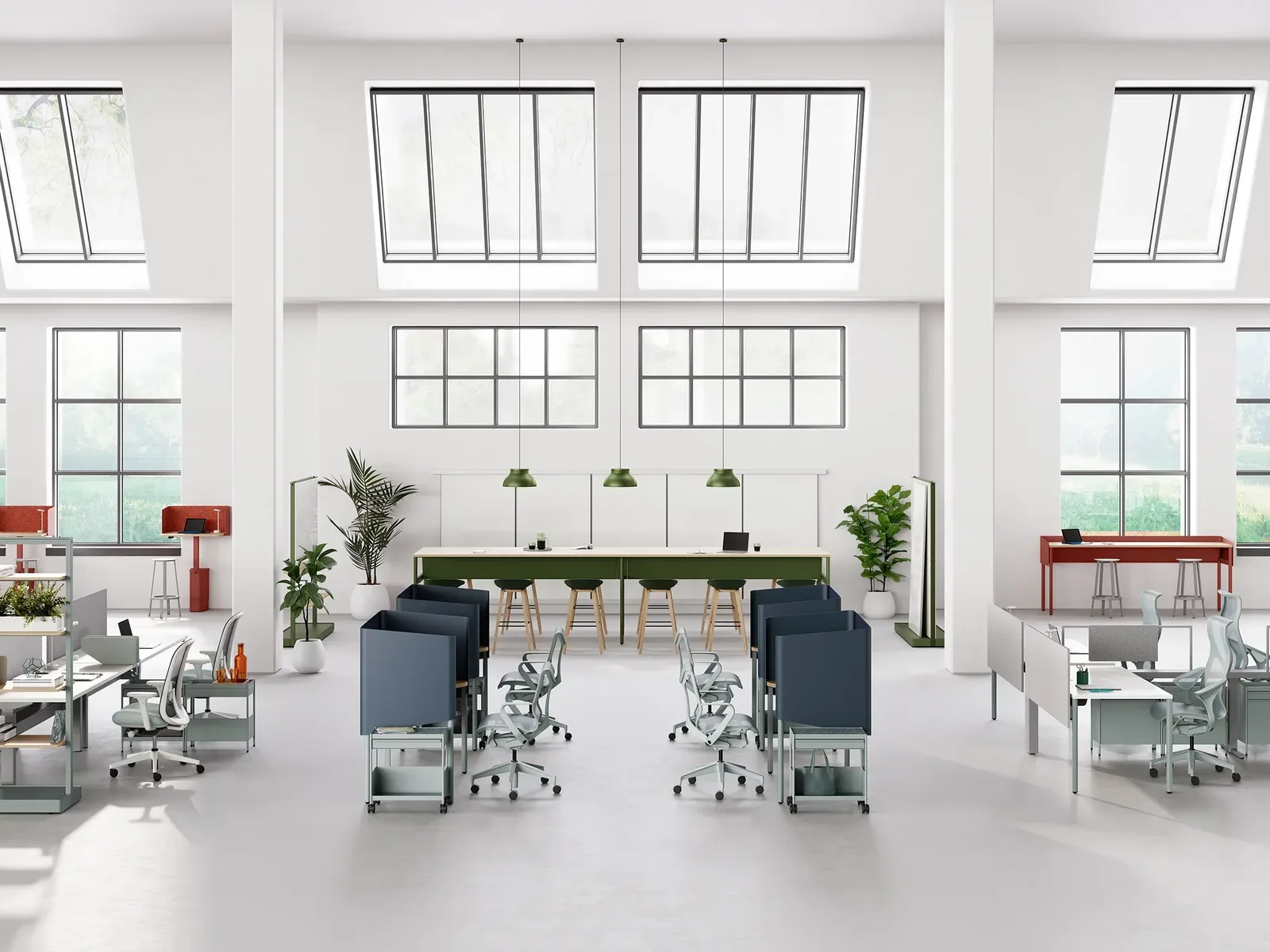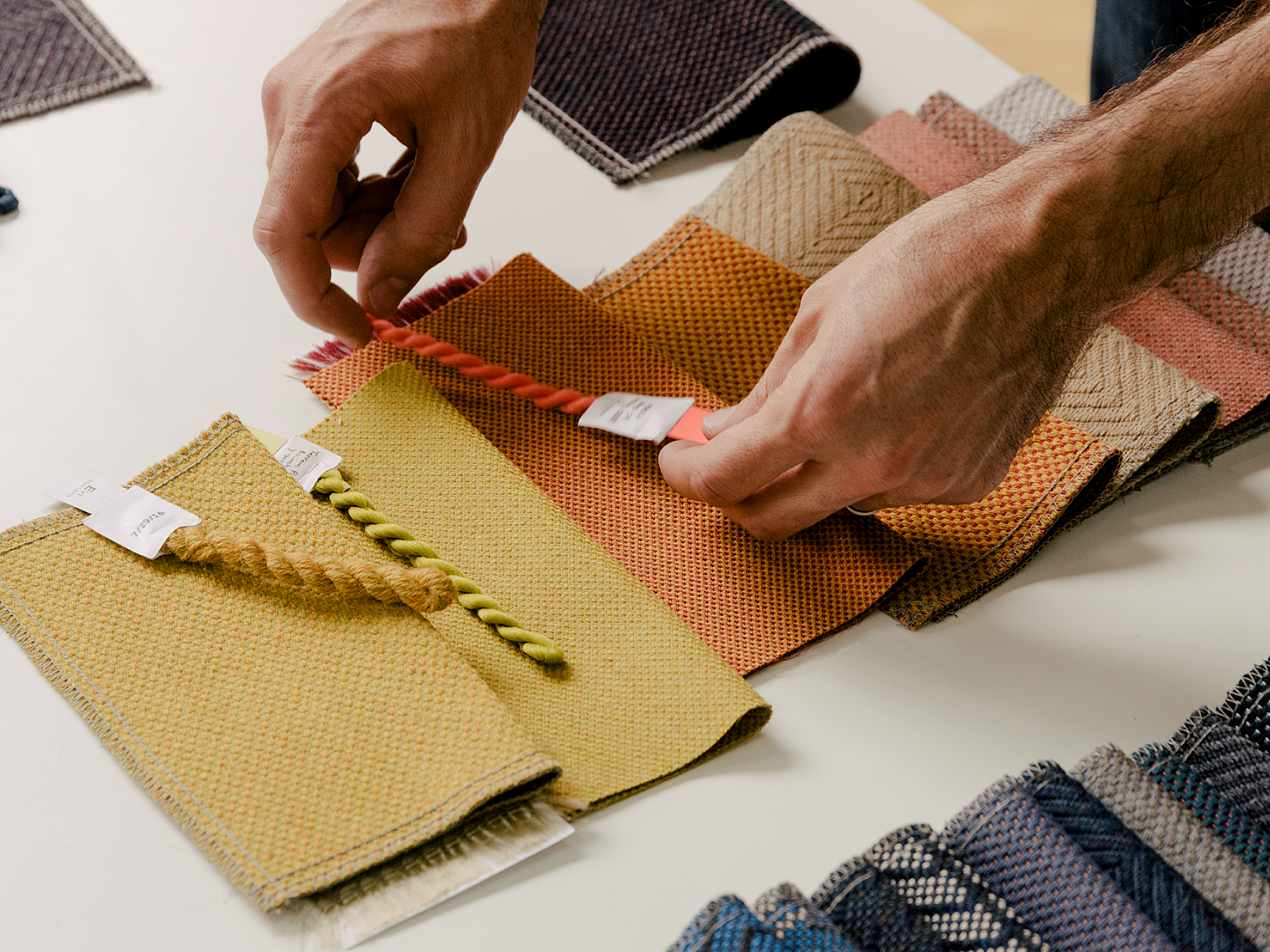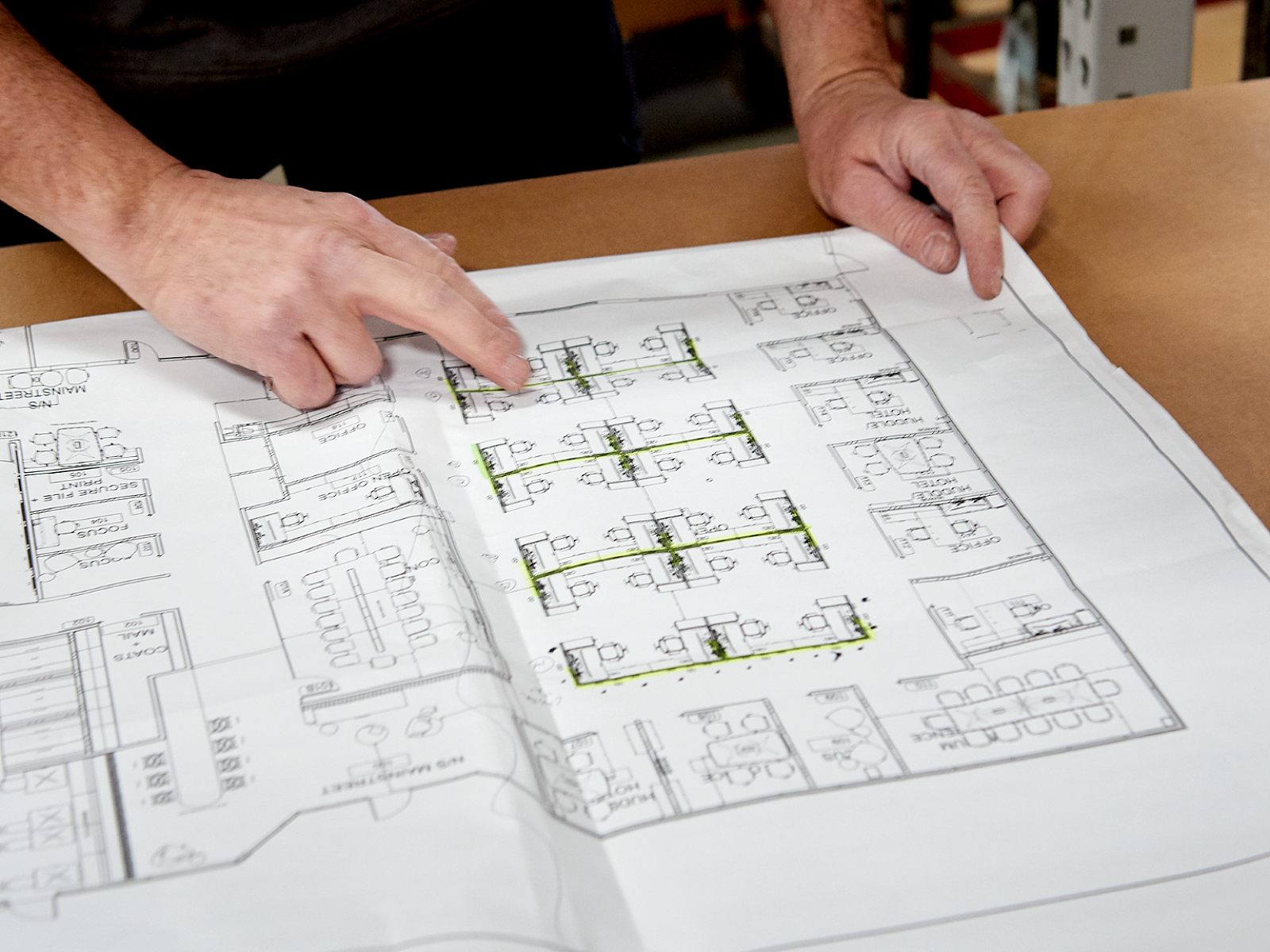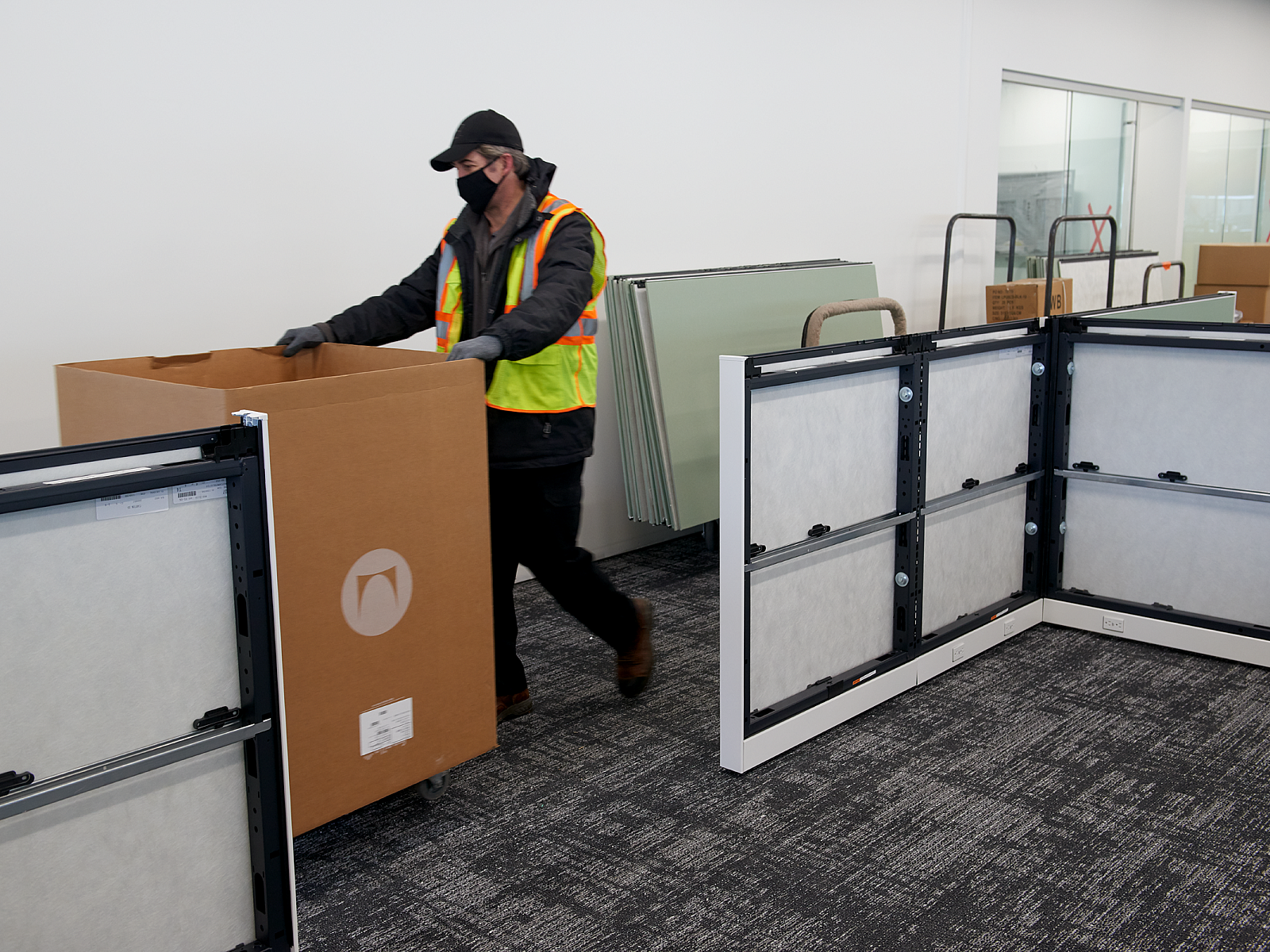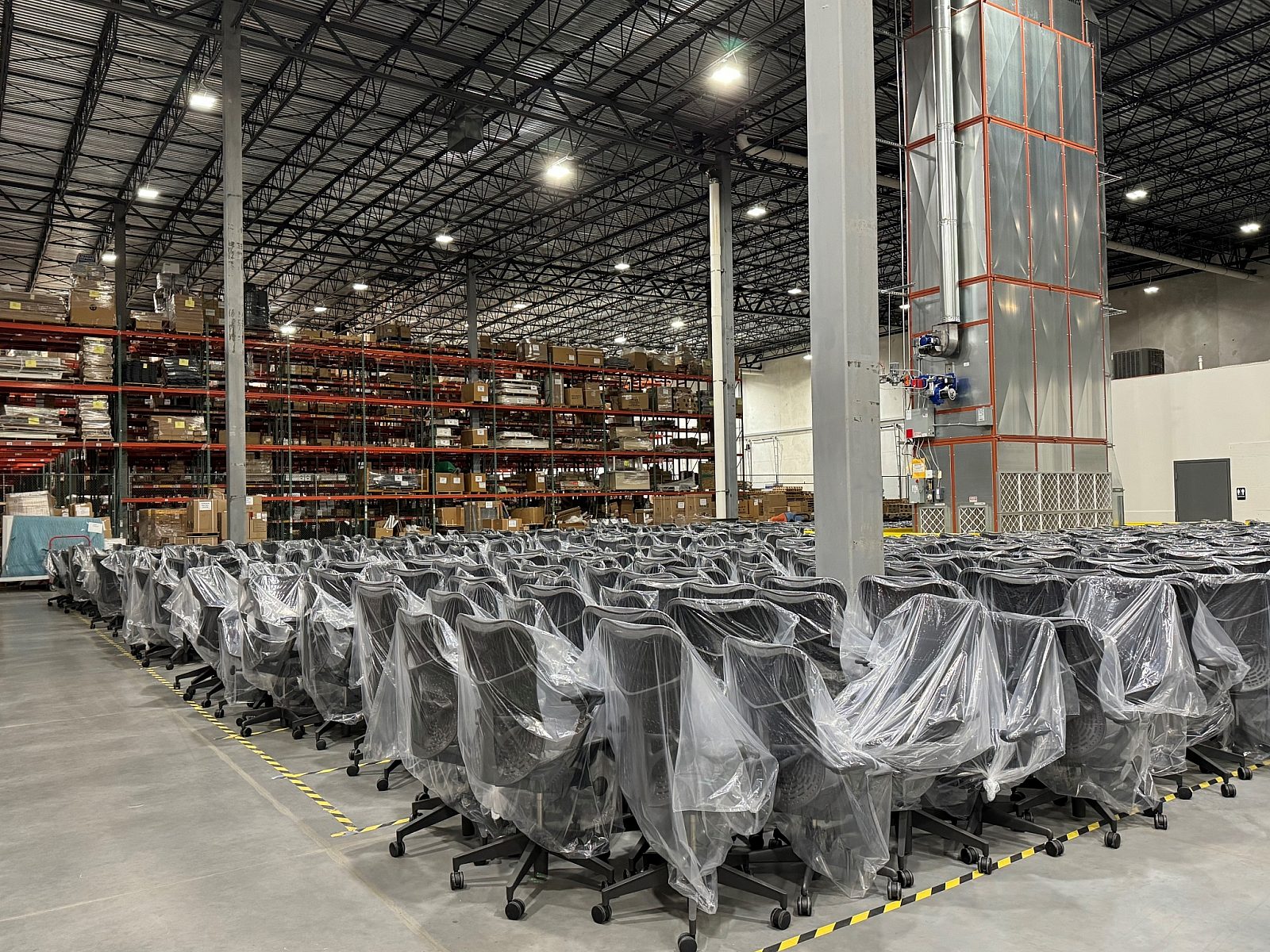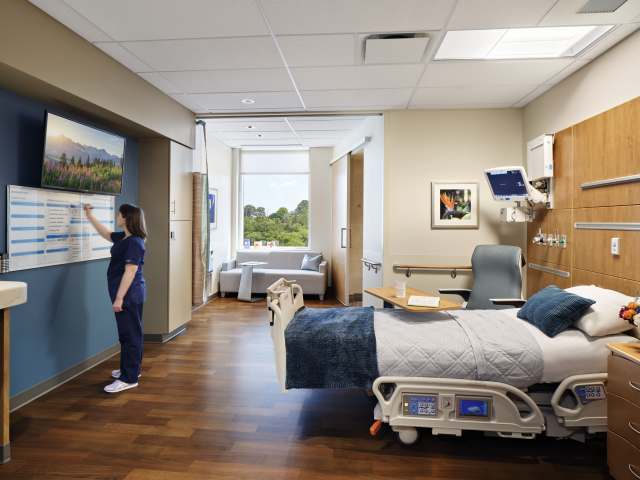Designing for Connection: The Relationship-Based Workplace
The pandemic changed how we work and connect—now, the challenge is making the office a place people want to be. At CFI Workspace, we believe the answer is relationship-based design: creating spaces built for people, not just productivity.

What is a relationship-based workplace?
A relationship-based workplace puts human connection at the center of its design philosophy. It's an approach that acknowledges how employee engagement, creativity, and well-being thrive when people feel seen, supported, and connected. An office is no longer just a site of productivity—it’s a social and cultural hub where human connection drives performance, engagement, and retention.
Creating a relationship-based workplace starts with understanding how people connect at work—and designing spaces that support those interactions.

Group Spaces: Flexible and Inclusive Collaboration
Today’s high-performing teams thrive in spaces that adapt to their needs—open lounges for brainstorming, huddle rooms for hybrid syncs, or mobile furniture that allows for quick reconfiguration. It's not about one-size-fits-all boardrooms anymore—it's about choice and flexibility, enabling teams to connect how and when they want.

Community Spaces: Building Culture and Belonging
Culture and connection are built in shared spaces. These environments should be designed to encourage chance encounters, cross-functional dialogue, and social interaction. From café-style kitchens to amphitheater seating for town halls, these zones foster the informal connections that build culture, spark ideas, and cultivate loyalty.

Individual Spaces: Focus and Recharge
Employees need areas where they can unplug from noise, think deeply, or reset between meetings. Instead of isolating individuals in rigid cubicles, modern design introduces “alone together” spaces—quiet, comfortable zones where people can work independently while still feeling part of a larger whole. Think: soft-seating nooks, wellness pods, and retreat zones that encourage focus and rejuvenation.
The Value of Connection in Today’s Workplace
The benefits of relationship-based design go beyond employee satisfaction—they touch every corner of the business:
Increased engagement and retention: People are more likely to stay where they feel seen, valued, and supported.
Higher productivity and innovation: Environments that support collaboration naturally lead to better outcomes.
Stronger culture and alignment: A connected workforce is one that shares common goals and values.
As organizations navigate ongoing shifts in work habits, the ability to adapt workspace strategy to meet human needs is quickly becoming a competitive advantage.
At CFI Workspace, we help clients bring RBW to life—translating it into tangible, tailored design solutions. Through partnerships with industry leaders like MillerKnoll and the use of platforms like Compass, we combine data-driven insights with hands-on experience to design for connection. Our goal is simple: to create environments where people thrive.


